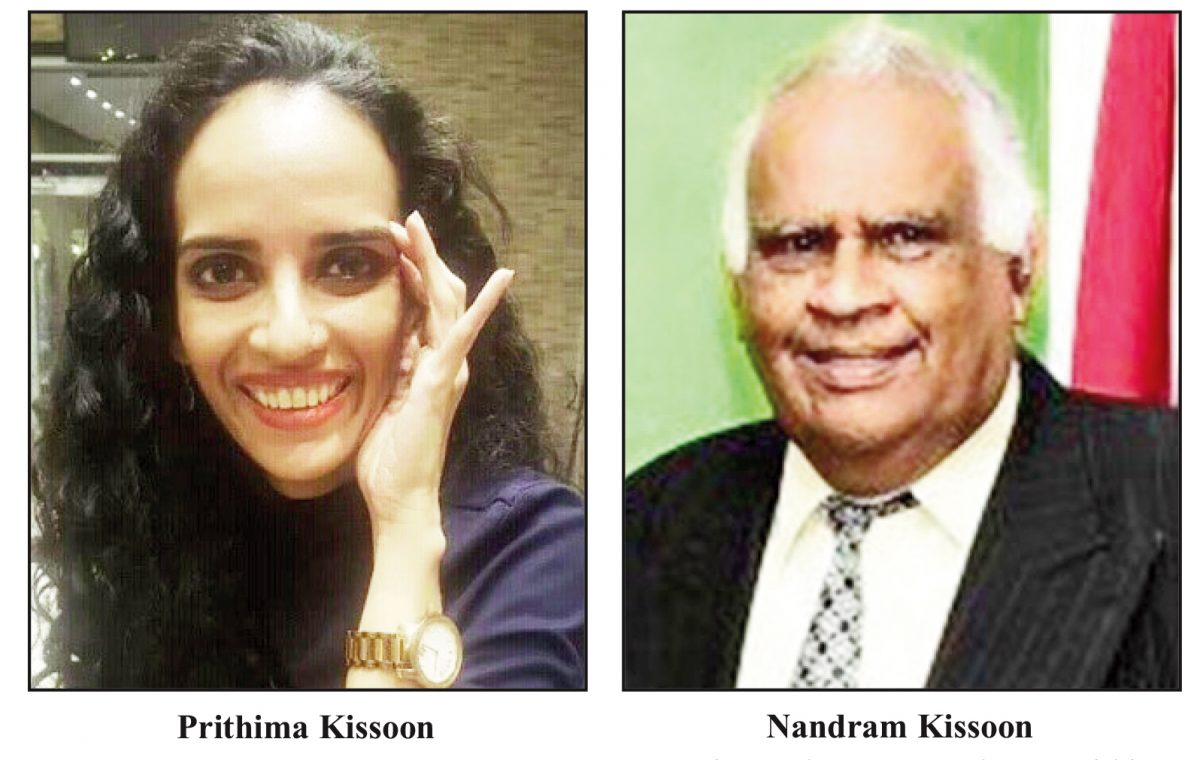Finding the potential for bias, the Guyana Court of Appeal last year threw out a 2018 decision of the Public Service Appellate Tribunal (PSAT) to allow its Chairman, Justice (retired) Nandram Kissoon, to continue hearing a matter involving his niece, former Deputy Solicitor General Prithima Kissoon.
The appellate court found, among other things, that the continuation of the case before the PSAT as it was then constituted, with the Chairman hearing his niece’s complaint, would have rendered its deliberations unfair on grounds of possible bias.
While the ruling was handed down almost a year ago, it was only made public last Thursday by former Attorney General Basil Williams. It is unclear what prompted the release. Attempts by this newspaper to contact Williams were unsuccessful.
Prithima Kissoon had challenged a decision made by the Public Service Commission (PSC) to dismiss her on August 31st, 2017.
Following the commencement of the matter, a claim of bias from a dissenting member of the PSAT, due to the relationship between the retired judge and his niece, was made to the tribunal.
In the majority 2 to 1 decision of the PSAT, dated June 28th, 2018, the retired judge had said that it ought to have been presumed that he would be faithful to his oath to discharge the duties of his office with impartiality and in accordance with the constitution and the tribunal’s act.
Quoting a number of cases which dealt with the rule against bias and the principles of natural justice concerned with procedural fairness, the Chairman had said that “a mere suspicion of bias as a result of the relationship between him and niece should not suffice,” while advancing that he was qualified for the Chairmanship position having held the post of a former judge and having extensive training and experience.
“It must be presumed that he (the Chairman) is capable of disabusing his mind of any irrelevant personal beliefs or pre-dispositions and carry out his oath of office”, he had said.
The Chairman opined that his relationship with his niece was not enough for him to recuse himself while noting that they shared no “social relationship.”
The majority of the PSAT decided that notwithstanding the relationship, the principle of necessity mandated that the Chairman preside over the proceedings.
Proceedings for judicial review were consequently filed in the High Court to question this decision.
Justice Fidela Corbin-Lincoln would later find that there was a real danger of bias in the Chairman continuing in the proceedings but nonetheless ruled that based on the doctrine of necessity, the reasons as put forward by the PSAT were not so unreasonable or irrational or made in bad faith. Justice Corbin-Lincoln went on to say that with judicial review proceedings not being an appeal on the merit of the decision, she would not substitute her own view for that of the tribunal and ultimately decided that the Chairman of the tribunal could preside over the matter.
Aggrieved with this decision, Williams, then Attorney General, went on to file an appeal before the Court of Appeal.
In the decision, dated December 18, 2020, the court found that Justice Corbin-Lincoln on a finding of bias “ought to have considered that the continuation of the case before the [then] constituted PSAT would render it unfair.”
Acting Chancellor Yonette Cummings-Edwards, Justice of Appeal Dawn Gregory and High Court Judge Diana Insanally who presided over the appeal, ruled that consideration should have been given as well to other alternatives that were available and which did not require the invocation of the rule of necessity.
The judges found that having regard to all the circumstances, consideration could have been given to a new Chairman being appointed specifically for the purpose of hearing the former Deputy Solicitor General’s matter before the PSAT.
In those circumstances, Williams’ appeal was allowed.
Noting, however, that Prithima Kissoon’s original case challenging her dismissal seemed not have been determined on its merits, the Court of Appeal noted that she could therefore re-file as she would “not be shut out from the doors of justice, if she should see it fit to revert to judicial review proceedings.”
The Court of Appeal said that she “still (had) the opportunity to seek redress in a court of law” as “the PSAT is not the only body vested with power to adjudicate on her matter.”









